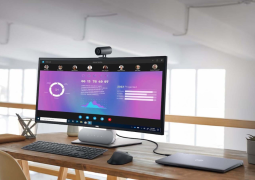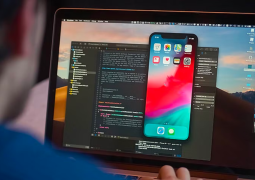How do amusement parks maintain a touchless park experience with QR codes?
by 30/06/2021 20:010

During the pandemic, where nobody wants to touch anything, parks are looking for ways to offer a touch-free experience.
QR codes have rapidly grown in popularity because of their ease of use and as a means to offer contactless service in amusement parks and zoos.
It also makes the park experience more engaging and allows visitors to immerse themselves in a whole new level of experience while they are in the parks and zoos.
What is a QR code?
A QR code abbreviated from “Quick Response” is a matrix code designed and developed primarily to track automotive parts in the manufacturing industry and after a few years, this tech is integrated into many uses with the use of a QR code generator online.
This technology simplifies complex processes as it is easily scanned by smartphones to access the information embedded in it. The code typically appears as a black and white square, arranged in a grid pattern.
There are two types of QR codes, static and dynamic QR codes. The dynamic QR code is much better than a static QR code as it can track data and the user can edit its content at any time. With a static, however, data cannot be tracked and unable to edit the content.
Ways to use QR code technology in an amusement park
The main aim of the QR codes in parks is to acquaint the visitors with the park’s various activities and to offer an engaging experience.
QR code as ticket
Save visitors from long queues upon entering by using QR codes as tickets. By generating a Bulk URL QR code for a large volume of tickets, you can reduce the long lines and ticket fraud problems.
Using the bulk URL QR code solution allow you to create thousands of unique QR codes for park tickets, which will contain an authentication log-in and token (the token is the unique number per QR code generated).
When park visitors scanned the code, it redirects them to a website URL of the management with an authentication log-in and token seen on the URL of the website.
Park maps
QR codes can be placed in different sections of the park. Instead of printed park maps, visitors can scan the QR code and download the map on their phones to directly guide them to their destinations.
Parks can also use these digital maps via QR code to promote the shops, restaurants, food stalls, and other attractions in the park.
Virtual tour
Because of a pandemic, people wanted to visit parks and were tired of staying at home. Parks can still offer a fun experience to guests with the use of a video QR code while the operations are put on halt.
People can simply need to scan the QR code using their smartphones. It then takes them on a virtual tour of the park.
Ride information through QR code
QR code can be posted in front of the ride or attraction that links to a page with photos and information or a short video commercial for the ride. This engages the visitors as well it shows how awesome the ride is.
QR code menus
Amusement parks can add a QR code in front of their restaurants that will lead to a menu that allows guests to peruse the items digitally.
It can also allow guests to make a reservation right from their phone through the QR code link.
Benefits if QR code in parks
Eliminates forged tickets
Scanning the ticket can reduce mistakes and effectively verify invalid tickets
Quick access
Scanning takes around 0.2 seconds; visitors do not need to make a long queue and wait for a long time to access the park.
Contactless
QR codes enable contactless dining and as information points for staff and visitors. By going touchless, you’re able to minimize the spread of the virus and make sure you’re taking care of everyone.
Conclusion
QR codes are the best tool to develop a service system for parks to provide visitors with a more relaxing, easier tour experience and maintain a touchless experience.
With the availability of a QR code generator with logo online, reopening parks globally was not as hard as it can be with adopting advanced digital measures such as QR codes to strengthen their prevention protocols for visitors and staff from the spread of the COVID-19 virus.



